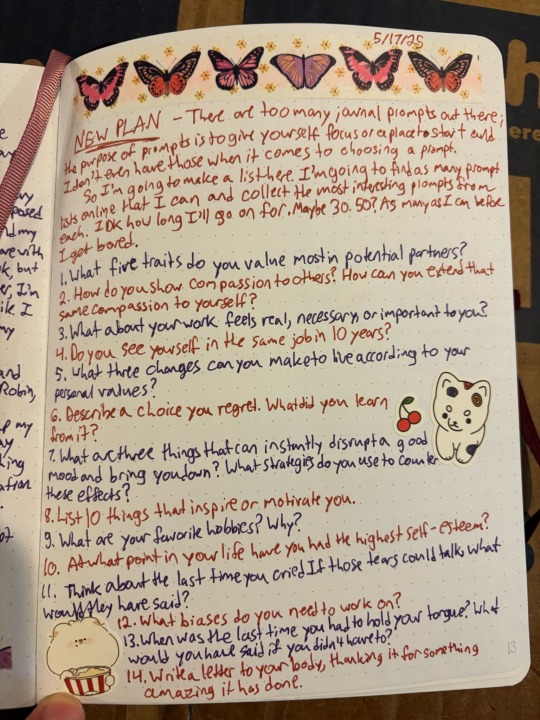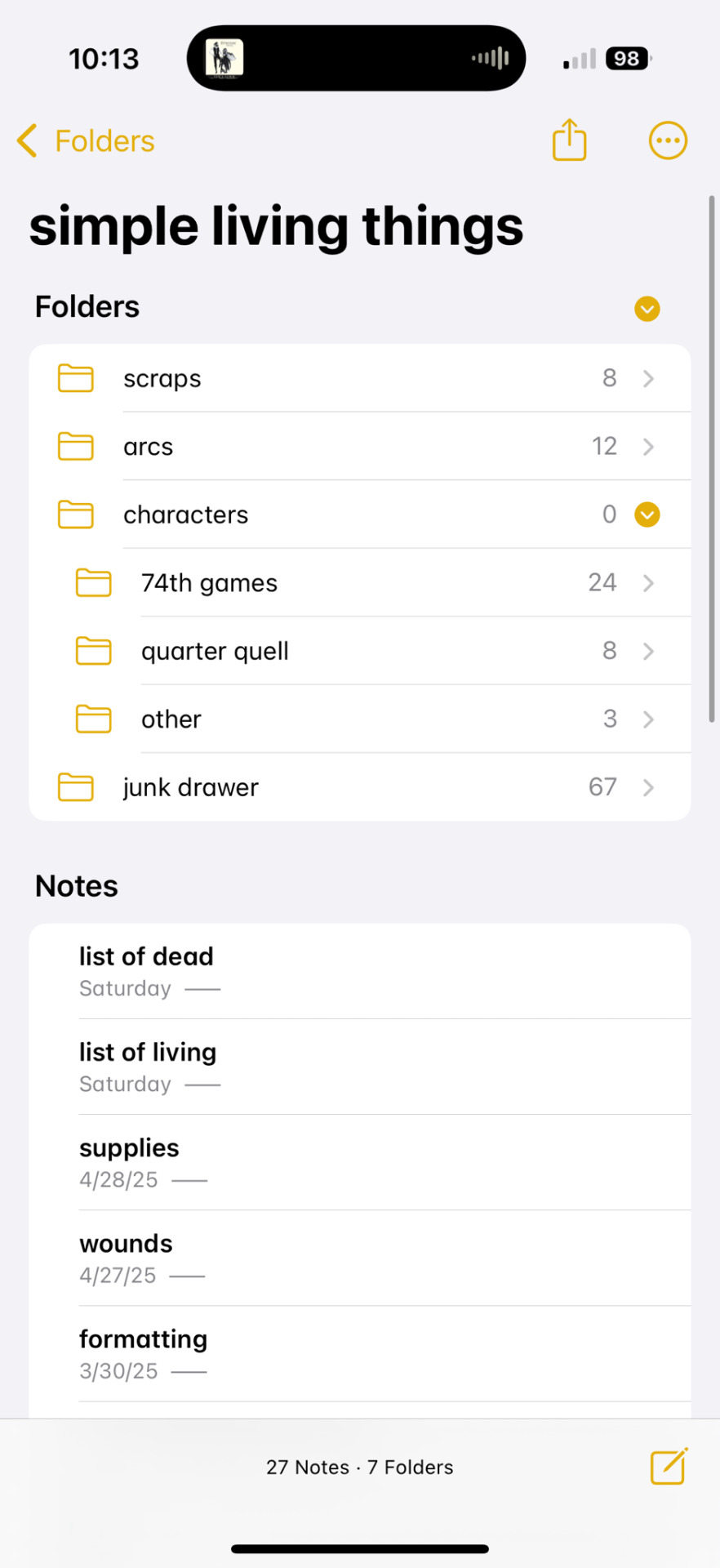#junk journal techniques
Explore tagged Tumblr posts
Text
Junk Journaling: Finding ephemera to use
Since we just talked about how to make a junk journal last post, now let’s talk about what you will use to fill it up and make it pretty. Junk journaling is like going on a treasure hunt where every little piece you find can tell a story. You can use almost anything to create your journal. First off, you might want to start with the basics, like old book pages. These can be from old novels,…

View On WordPress
#buttons and beads#coffee-stained papers#collage art#creative journaling#DIY journals#DIY postcards#ephemera collection#fabric scraps#handmade stickers#journal crafting#journaling#journals#junk journal#junk journal ideas#junk journal supplies#junk journal techniques#junk journals#magazine cutouts#making ephemera#personalized journals#scrapbooking#ticket stubs#vintage book pages#vintage ephemera#washi tape
14 notes
·
View notes
Text
ʜᴏᴡ ᴛᴏ ꜱᴛᴜᴅʏ ʟɪᴋᴇ ʙʟᴀɪʀ ᴡᴀʟᴅᴏʀꜰ

1. Curate a Luxurious Study Environment
Choose a study space that feels sophisticated and clean. Think: a home library, a perfectly organized desk, or a favorite spot at a chic café.
Add luxury touches like scented candles, fresh flowers, and soft, ambient lighting. Blair would never settle for clutter!
2. Dress Like a Queen Bee
Elevate your look: Blair never slouches in sweats. Choose something stylish yet comfortable, like a cashmere sweater, tailored loungewear, or a polished blouse.
Accessorize with a headband, stud earrings, or a delicate necklace for an effortless, put-together vibe.
3. Create a Glamorous Study Kit
Invest in elegant stationery: monogrammed notebooks, gold or pastel pens, and highlighters that match your aesthetic.
Use a structured planner or journal to organize your day (bonus points for color-coded to-do lists).
4. Organize Tasks with Precision
Start by writing out a prioritized to-do list. Divide tasks into categories: "Must Do Today," "Can Wait," and "Bonus Goals."
Break larger projects into manageable sections with clear deadlines for each step.
5. Schedule Study Blocks
Use a time management method like the Pomodoro Technique (25 minutes of focused work, 5-minute breaks).
During study blocks, turn off distractions (silence your phone, close unnecessary tabs) and commit to full focus.
6. Use Blair-Worthy Study Techniques
Flashcards: Memorize concepts efficiently and quiz yourself.
Active Note-Taking: Rewrite your notes in a neat, organized manner, summarizing key points.
Study Groups: Engage in intellectual debates or discussions to solidify your understanding. If solo, practice explaining topics out loud.
7. Stay Energized with Elegant Snacks
Blair wouldn’t snack on junk food. Choose something light and upscale:
Green tea, sparkling water, or artisanal coffee.
A small bowl of mixed nuts, fresh fruit, or dark chocolate.
8. Refresh with Chic Breaks
Use breaks to pamper yourself or recharge:
Apply a hydrating face mask or spritz facial mist.
Do a quick yoga stretch or go for a short walk.
Play soft classical music or a calming playlist to reset.
9. Set Ambitious Yet Realistic Goals
Keep your eyes on the prize. Blair's motivator was visualizing success. Remember why you're working hard, whether it’s a test or a career goal.
Reward milestones: Treat yourself after completing major tasks, like indulging in an episode of your favorite show or a mini shopping spree.
10. End with Reflection and Gratitude
Review your accomplishments for the day. Check off completed tasks and organize any unfinished ones for tomorrow.
Tidy your study space to maintain a sense of order.
Wrap up with positive affirmations: "I am capable," or Blair's energy: "I’m the best, and I know it."

Take care of yourself <3


pt.2?
Likes, comments, and reblogs are appreciated <3
#becoming that girl#clean girl#glow up#it girl#pink pilates princess#self development#self improvement#soft life#that girl#do it for yourself#blair waldorf#study#study motivation#studyblr#study blog#studyspo#student#university#student life#studying#art study
217 notes
·
View notes
Text
Multi-paper junk mini journal tutorial (low spoons version)
Last night, I mentioned that I like my blank books to have a combination of different papers: colored paper for sketching, blank paper for writing, dotted paper for lists, graph paper for schematics and maps, but there arent many manufacturers that make this. So I just make them myself.
And yall wanna know how to do that.
GREAT!
Here's the easy version. This is for:
-I want this for me, NOW, and I don't care what it looks like because I'm gonna cover it in stickers, and it's only going to be a few pages long. If it lasts a week, I'm happy.
You will need:
- desired papers, 8.5x11 inch regular ass sizes
- a piece of card stock or a thicker paper.
- stapler
- washi tape (optional)
- probably scissors
STEP 1

Take a piece of paper. Fold it in half. Tear or cut the paper along the fold line so you have two half sheets of paper.
If you want a larger book, you can just fold it in half and the book will be 8.5×5 instead of 5x3.25.
STEP 2

Fold the half sheets in half and crease them. Repeat this for every sheet you intend on using for the inside of your journal.* Try not to do more than 8 papers because it'll put stress on the stapler. The papers should now fit inside of each other.
*you could, if pressed, fold them all together in one big group. This is faster, however- if you've ever had a handmade zine that doesn't close cleanly it's likely that they stapled it together without creasing. To each their own. I don't run your life.

If there is excess on the ends that makes the book uneven, feel free to chop it off at this point.
STEP 3

Repeat step 2, but with the thicker paper, which is now your book cover.
STEP 4

Find the centerfold- which is the middle piece of paper. Lay it flat and make sure all the papers and the cover line up.

TIME TO MAKE FRIENDS WITH STAPLER!
Ah, yes- the zine-stitch. Three staples to hold it all together, one in the center and 2 an inch from the top and bottom. If you are doing a larger size, you may need more staples.
You can staple from the inside or you can flip it over and staple it from the spine. Stapling from the spine will make it smoother on the outside so if you're carrying it in your pocket it won't catch threads.
But sometimes stapling from the inside is the only method that works. I've got a fix for you at the end.
Stapling is easy because it's a fast fix, but you may find yourself wasting staples because they don't go all the way through. This can be that the paper is too thick or that there's too many papers. I have a more complicated version of this that's suited to this situation, which I'll write later.
Other, more obvious solution: better staples, better stapler. But I don't have that.
You can call yourself done now, or...
OPTIONAL STEP 5

If you stapled from the centerfold or if you plain don't like the way your spine looks, we're gonna use some washi tape.**
Gently find an unstapled flap in the cover and separate it so you can get some washing tape to adhere to the inside.
Run it along the spine with the book flattened.
Adhere it to the inside of the cover at the bottom and then fold.
**an advanced technique for this when you don't have washi tape: cut a strip of contrasting paper at least 1 inch thick and 2 inches longer than the spine (so in this case it would be 1 inch by 7 inches.) Coat the back of this paper with glue and then use in the same way the washi is shown. This will require extra curing time and you will want to put something heavy on top as it dries. Washi is just easier.
Now slap a sticker on it.

Nice!
And now you've got a little journal. Does it look great? Who cares? You don't have to look all over for a piece of graph paper when you wanna draw a map of something while you're out doing stuff.
It took me longer to write the tutorial than it did to make the thing. The hardest part was getting the staples to behave.
I have a higher spoons version that I will write up later, but this is the punkass way of doing something for yourself.
UPDATE: The tutorial for the nicer version is available here!
185 notes
·
View notes
Text
Journaling 101:
A guide for all your journaling needs, whether you’re just starting out and don’t know where to start, or if you’re looking for a way to stay more organized, you’re in the right place!
(disclaimer that this does include a lot of my personal experiences, and different things may work better for different people!)

-gratitude journal: keeping a journal including things that you’re grateful for really adds a new, and positive aspect to your life. Start by writing down a list of 3-5 things that happened that day that you’re thankful for, happy about, accomplishments you’ve achieved, or maybe even a special event you’re looking forward to. Doing so really reminds you of all the good things that come to you in life.

-shadow work journal: Shadow work journals are very useful if you deal with trauma. They make you reflect on your past and help you to understand the root of your trauma, leading to helping you heal from it. Shadow work journals ask certain questions that really make you think, helping to uncover your trauma and heal from it. You can’t heal if you don’t fully understand what you’re healing from! They sell certain books that specially come with the questions already inside, or for a cheaper and more easily accessible option, you can look up some shadow work journal prompt ideas online.

-dream journal: A dream journal is a perfect journal idea if you’re someone (like me) who has the most vivid and interesting dreams. I usually just write down everything I remember from my dreams into my notes app, but that can get cluttered easily, so I recommend keeping a notebook next to your bedside for easy access first thing in the morning. After you write down everything you can remember, you can begin to dissect the dream, detail by detail. Dreams have meanings & every single detail is a sign from your subconscious. I have a book called 12,000 Dreams Interpreted by Gustavus Hindman Miller, and it’s very interesting to read about, but sometimes my dreams are super specific and weird that I have to resort to using google!

-scrapbook/junk journal: This is one of my favorite things I’ve started doing! There are so many different ways to do it, but for me personally, every week I collect items (receipts, post cards, wrappers, movie tickets, restaurant menus, business cards, photos, napkins, letters, clothing tags, etc.) from that week and I create a weekly recap spread! It helps me document what I did that week, so in the future, it helps to look back and remember the small details too. Even as I’m scrapbooking at the end of the week, it helps me to reflect and look back on just how progress I had made that week. It doesn’t even have to be big events, but maybe just receipts from a small trip to the grocery store. Think of anything. Get creative! I really do love that you can get really creative with this! I also decorate the pages with some washi tape, stickers, markers, pens, and paper. Another idea I like is to just make some themed collages using stickers, paper, and other supplies. I started by watching some scrapbooking ASMR videos on YouTube and I enjoyed it so much, I just knew I needed to do it myself.

-spirituality journal: I love keeping a spirituality journal!!! This journal is what I write in to manifest, where I take notes about different essential oils, chakras, crystals, meditation techniques, and other spiritual tips! This journal is also where I write down my daily tarot readings, and I do a lot of spiritual growth and daily talks of healing and reflecting here. It’s kind of like a stream of conscious type of thing! I write however I’m feeling or what I’m thinking, usually with no second thoughts, and it does wonders after I put my spiritual thoughts out there onto paper. It helps to solidify however I feel. This has been my most used journal lately, and it really helps!

-sketchbook: A sketchbook is super useful for those who have a more artistic side to them and always need to be using their hands and being creative. I keep a sketchbook myself, and although I haven’t used it in quite some time, I still find them to be very useful. Whether you’re sitting in class and doodling while you listen to the lecture, or you’re trying to capture the beautiful landscape around you in the park, sketching is a very relaxing activity and a great creative outlet. Even if you aren’t very artistic, sketches are supposed to be a rough drawing, so they definitely do not have to be perfect. Plus who knows? Maybe with sketching, you will discover some hidden artistic abilities! I personally feel that it’s best to try my hand at everything, so I never turned down sketching to help myself relax. Plus, it helps to draw out any emotions you’re feeling in that moment.

-daily diary: Of course I have to talk about the classics. A daily, basic, diary. Perfect to just jot all your thoughts down on. It’s perfect to write in first thing in the morning. You can write about your hopes for the day, your current thoughts, and then revisit at night and talk about what occurred that day. Another option is to carry it around with you, like in a purse, and document when needed. This also makes for a good time capsule, and in a few years it will be interesting to look back on how your day-to-day life was at the time. You can also include any personal secrets, drama, and emotional turmoil you feel at the moment as that will also be something to look back on in the future, so you can see how far you’ve come since then. Trust me! Everybody loves the classics.

-shared journal: SUCH a cute idea for you and a group of friends to do! One way I’ve seen this one before, is one friend keeps the journal for a few weeks at a time, and writes down anything they’re thinking, documents whatever they’re doing in life, and just anything they want in general! Then, they send it off to the next friend and it just keeps going around the friend group until the journal is filled 🤍 This idea is great for people who have friends that live far away from them and don’t get a chance to see them all the time, as it gives them a way to still keep in contact other than being over the phone. And I can imagine that it’s very fun to look at what all your friends are up to once it’s your turn with the journal! I’ve seen people who have filled up multiple journals with their friends! I will definitely be starting this with my friend group! It’s like a sisterhood of the traveling journal for sure🥰

-bullet journal: A bullet journal is basically just an everyday journal to keep your notes, to-do lists, and trackers in! You can track your mood, the weather, exercises, how many books you’ve read, and so much more! I’ve seen people take it month by month, and each month they create a beautiful cover page that coincides with that month! I’ve never done a bullet journal before, and I feel like my artistic side is not as well developed to achieve the same looks as some of these bullet journals I’ve seen online! You can start one easily with a dot grid notebook and some pens and highlighters! There are so many ideas for spreads on apps like Pinterest and TikTok if you have trouble getting started Using a dot grid notebook makes it much easier to split the pages into equal sections. This is perfect for those who love to use a calendar and want to have it be physical!

-poetry/fiction writing journal: Basically self explanatory but a journal to keep all your poetry and fiction writing! Poetry writing is a great way to get your feelings down on paper and is also great a form of art! I enjoy fiction writing a lot, and it helps me to stay creative!
♡I hope this helped some of you get a new start in journaling and find what works for you! Feel free to send me any asks if you have any questions!♡
#healing#love myself#love yourself#manifestation#manifesting#positive affirmations#positive mindset#self care#self discovery#self healing#journal#self journey#journaling#girl blog aesthetic#girl blogger#be that girl#growth#mindset growth#becoming that girl#girlblogging#this is a girlblog
27 notes
·
View notes
Text


A junk page I made today; I’m slowly learning techniques to make my spreads look nicer, like coloring in the negative space. I also included a page of writing to show off what most of my pages look like. I’ll always be more of a writer than an artist, even as I experiment with what I put in my journal.
10 notes
·
View notes
Text

𓇼 COMMUNITY BULLETIN ! 𓇼
see what’s happening around the town of palmview grove from 04/14 - 04/27 ! below the cut are local events that are not mandatory, but may be used for starter ( or reply ) inspiration. threads pertaining to these topics can happen at any time, not only on the day of the event !
MARCH 31 - APRIL 06
APRIL 14: basics of bullet journaling @ lagoon library ! learn creative solutions to organize your goals for the new year ! all skill levels welcome.
APRIL 15: national laundry day @ lochness laundry ! enjoy a free dry with every wash as we celebrate our special day ! $5 added to every card loaded today !
APRIL 16: one dollar wednesday @ tidepool drive-in ! see any movie showing for just $1.
APRIL 17: national cheeseball day @ mango bay restaurant ! come taste our specialty cheeseballs, with the option to add fruits or cheeses for half off !
APRIL 18: line dancing @ tipsy shores dance hall ! learn and practice this popular dance style while live country music plays !
APRIL 19: towel bunny class @ lagoon library ! want to give someone a unique gift for easter ? join us in making towel bunnies. you can hide a special treat inside of them. we will provide the supplies while they last.
APRIL 20: egg hunt @ ray harbor park ! eggs are hidden everywhere the eye can ( and can’t ) see ! join us for some family fun and the chance to win cool prizes in the rare eggs !
APRIL 07 - APRIL 13
APRIL 21: adult paint night @ heights community center ! paint your own masterpiece ( with the help of your own sips ) with the guidance of an experienced art teacher !
APRIL 22: earth day cleanup @ all around palmview ! join your neighbors in cleaning up the scenery around town !
APRIL 23: meditation class @ cove wellness center ! need information on meditation and its benefits to the mind and body ? interested in learning mediation techniques ? stop by and experience one of our meditation classes !
APRIL 24: national pigs in a blanket day @ sunshine bakery ! come get some pigs in a blanket wrapped in house made dough !
APRIL 25: open mic @ link in bio ! are you a musician, comedian, actor or other type of creative ? share your artistry and check out the art of others !
APRIL 26: trade-in day @ the book nook ! bring in a book ( in decent condition ) and get your next book 50% off !
APRIL 27: junk journaling workshop @ lagoon library ! we will guide you through upcycling materials to create a personalized journal. this program is perfect for those who love to create.
9 notes
·
View notes
Note
hiii so I always want to start writing a story but I feel like I can never get past the planning process and turning a small idea into something more. I was wondering what you do to plan whole writing and like get started🙏🏻🙏🏻
firstly, i’m a firm believer that anyone can be a writer if they’re passionate enough. i began writing when i was 11 because i needed somewhere to put my thoughts. my writing was ass, but i was aware of that so i fixed it and fixed it and fixed it
second, planning a story is one of the most important parts to writing. and i say this with wiggle room because everyone plans different. everyone. some people only plan out 2 characters and 1 arc and they’re able to create a 400 page book. others (me) need everything written down and fleshed out before they can even touch their keyboard.
a few things i use/do to make my extensive planning easier:
— my notes app !!
i plan out absolutely everything on there. personally, i like creating a folder for each story, then create assortments of even more folders to keep everything neat. so, needless to say, i have way too many notes & i genuinely think my life would be over if i lost them. also! quick tip: keep a ‘junk drawer’ in your folder for when u want to scribble down ideas & when u use them, delete them.
ss of my SLT folder for reference !


as u can see, the vast majority of my planning is shoved into my junk drawer. but, if i didn’t delete notes after use, it’d undeniably be in the hundreds. but my notes that aren’t in folders are kept neat. these are the ones that i know, for certain, will be opened and updated almost daily
— physical notebook !!
nobody talks about how useful it can be to simply write things down. it can get annoying, sure, but it 100% helps to combat with writers block.
personally, though, i only use notebooks for my bigger projects (aka., when i know a story will be over 10-15 chapters, or when it has a lot of plot packed into it). tbh when i first started using a notebook, i did it for shits n gigs bc i thought i wouldn’t use it. who needs that for fanfiction anyway ?? spoiler alert: me! but yeah, anyway, i ended up filling the entire book (this was for another fandom i wrote for back in 2023 & i still have the book on my desk bc its pretty).
for SLT, i knew i’d be filling that thing up heavy so i bought a nicer one. like, i went all out. i got it in green to represent the foliage of the arena & i got a nice linen cover (i recommend jumping fox for journals)
here she is !



honestly, though, the best advice i can give you is to just explore. explore your story, your prose, and yourself as a whole. because, even if it’s “just fanfiction”, writing is an art & a way to understand oneself. so, have fun with it! buy random books, scribble down random ideas, pin random papers onto a corkboard (yes i did that in 2023 as well—lowkey tedious, highkey aesthetic)
but, like i said, the process of planning looks different for everyone. some people don’t plan at all & that’s okay! you can still pump out a stunning ass story, that way. and, as you can see, i tried lots of different techniques before i settled down on journaling and notes-ing
6 notes
·
View notes
Text
today! I am starting a journal. I am combining bullet journaling and junk journaling techniques. everyone wish me luck that I continue this for more than just a week or something.
#I need to dump my thoughts somewhere and I also want somewhere to glue down random ticket stubs and such that I'm given#I will also be using it for to-do lists cause I love a good to-do list
13 notes
·
View notes
Text
Studies
You will need:
a sketchbook or journal
colouring and drawing media
Do:
Replicate famous artworks or studying various artists’ techniques.
Experiment with colour palettes.
Explore different art styles - see below:
abstract art, abstract expressionism, acrylic painting, alabaster carving, animation, assemblage, audio art, batik, blackout art, block printing, book embellishments, bookbinding, brush lettering, calligraphy, cartooning, ceramics, collage, coloured pencils, comic books, composing, contemporary art, crochet, decalcomania, digital art, doodling, dot art, double exposure photography, drawing, Ebru, embroidery, engraving, ephemera arts, erasure poetry, etching, felting, fibre arts, filigree, film-making, finger painting, folk arts, frescos, glass arts, glazing, gouache, graffiti, graphic design, grisaille, hand lettering, hatching, henna tattoos, hieroglyphics, illustration, impasto, impressionism, India ink, ink blots, ink wash, inlays, installation art, intaglio, jewellery making, junk art, kinetic art, kintsugi, knitting, landscape painting, landscapes, leatherwork, letterpress, lino printing, macrame, marbling, metalwork, mixed media, mosaics, music, needlepoint, oil painting, non-representational, op art, origami, outsider art, paint skins, paper cutting, paper making, paper marbling, papier-mache, pastels, photography, pottery, printmaking, quilling, quilting, raku, recycled art, relief printing, resin art, resist painting, sand art, scratch art, screen-printing, sculpture, sewing, sound art, stickers, string art, surrealism, textiles, texture, tie-dyeing, tile arts, traditional crafts, upcycling, urban art, video art, visual poetry, watercolour painting, weaving, wire arts, woodworking, writing lyrics, Xerox art, xylography, yarn art, yarn bombing, zine making
3 notes
·
View notes
Text
Junk Journals: What exactly are they?
This post, I want to explore a different type of art. I want us to look at junk journals and see what they are, how to make them, what to do with them, and why you should have one. We cover all sorts of other types of art information on this blog and you can reference a few here and here and here. Now let’s see what all the fuss is about these junk journals. Have you ever even heard of them…

View On WordPress
#art journaling#artistic expression#collage art#crafting with scraps#creative journaling#creative outlet#creative projects#creative therapy#creativity boost#DIY journals#eco-friendly journaling#handmade books#handmade journals#journaling ideas#journaling tips#junk journal inspiration#junk journal supplies#junk journal techniques#junk journaling#junk journals#mindful journaling#mixed media journals#recycled materials#scrapbooking#upcycled art
3 notes
·
View notes
Text
i have rapidly run into a logistical problem with my personal art project ive been working on for about 2 months now:
i have absolutely no idea how many sheets of paper im gonna need even once all the text is pre-written, because i'm going to be hand-copying all the text into the book itself using fountain pens. i know im probably going to have a number of them that's WAY too high for traditional zine techniques, based solely on current wordcount. (~17k, and i'm probably only halfway to 2/3rds done).
consequently im considering just buying one of those huge five star school notebooks & just ripping out the subject folders and painting the cover, then gluing in my illustrations onto sheets like it's a scrapbook/junk journal instead of trying to hand-bind an entire book when ive never done it before
this is ENTIRELY due to scope creep but i refuse to scale it back. this stupid thing is for me and me only anyway so it's not like im going to share it with an audience or anything. it's just art for art's sake
3 notes
·
View notes
Note
Hi there!! Mind telling me something you think is cool? :D
(also how are you doing? like in general? /good vibes)
OH GOSH I FORGOT THIS WAS IN HERE
um... JUNK JOURNALS. they're so cool. i visited an older woman who is a collage artist and bookbinder with my aunt yesterday; she had clearly been doing her art for a long time. she had made a few junk journals (collage artpieces) over COVID, but none recently. she showed me one she was very very proud of, alongside one that was more a proof of concepts-- showing the many, many techniques for attaching bits and bobs-- than what she considered "art". it was INCREDIBLE. I know so so little about collage, but her skill level was OBVIOUSLY very high.
it was also interesting-- she was one of the people who'd gotten my aunt into doing art in a more professional way, and her influence on my aunt's art was, to my eye, incredibly clear. my aunt did not believe me, since she worked in a different medium, but their styles just... reflected one another.
and since this woman bound books-- or at least blank notebooks for selling-- i was able to show her a sample from my current bookbinding project!!! and she knew what i was talking about when i said "signatures" or "kettle stitch" or mentioned book cloth!! she even taught me a technique for stitch signatures together!!!!!!! and she explained waht a signature (in bookbinding) means to my aunt so i didnt have to!!!!!!!!!! TALKING WITH SOMEONE WHO KNOWS WHAT IM TALKING ABOUT IS SO FUN. i like not being the most knowledgable on a subject in the room.
[sidenote. this may be why i go around asking poeple to tell me things they find cool.]
anyway. i asked if she had any social media showing off her collage artworks and she said no :(((( i'd wanted to go through and take inspiration for the book-set-box im going to make...someday...for my current bookbinding project
anyways. collage junk journals are really cool and i wish i had the skills of that lady :]
#spokesman of the veil#mutuals <3#how am i doing?#similtaneously very anxious and the bravest i have been in a long time#im telling irls about my online friends! i showed two people mcr songs in the past few weeks!#this is... very new territory for me. i have traditionally been very hesitant to show people my interests#(since. for various reasons. my identity has been so tied up in my interests that rejection of the latter feels like rejection ofthe former#i have been talking online more recently!#i have no idea whats going on but it's... kinda nice? i like not being so scared of people??#dont get me wrong-- i am still so so scared but i'm able to move past it.#this is unprecedented. since 2020 at least.
3 notes
·
View notes
Note
Can I ask 17, 19, and 20? For Josh and anyone else you feel inspired to answer for. :D
Hiii! Thank you so much for the ask. I'm on a huge Joshi roll again so here goes.
17. If they can, what’s their fighting style? If they’re a mage, how do they handle being silenced or running out of magicka? Josh would describe himself as a spellsword. He's always had a talent for swordplay and favours fire based destruction magic whilst he's fighting. Having said this, Josh notoriously has damaged magicka reserves so he loses energy a lot quicker than your average mage. He's also short-sighted and refuses to wear proper corrective lenses so his ranged attacks are absolutely awful. Josh has had to adapt to this set of circumstances and gets around this by summoning his Flame Atronach, Molag'tear to deal with anything at range whilst he cuts through anyone dumb enough to get within range of his blade. Josh spends a lot of his downtime training, he's got experience with a few Dunmeri versions of the Khajiiti martial arts that he picked up when he was recovering from Corprus. He's folded that, his Morag Tong training and a few Urshilaku and Redoran techniques into his swordplay. So if he does run out of magicka, which is a guarantee, he's still got something he can confidently fall back on. He would still rather turn himself into a walking torch just for the intimidation factor. It's just not always the best strategy.
19. Do they have any quirks or hidden talents? Josh doesn't mention it much, but he's got some drawing talent. He doodles a lot when he's bored and can get a pretty accurate depiction of his surrounding down if he's so inclined. Mostly you'll see this on his armour, which he draws on a lot when he's bored and because he thinks it looks fun. He's also very well-educated, and researches Tonal Architecture, the Dwemeri Language and puzzle locks in his spare time. Which means his fucking about with dwemer constructs a lot.

20. If you took their bag and upended it now, what would you find in it?
Joshi's bag is full of junk. Plain and simple. He's not really sure what he needs when he's travelling so he usually grabs everything that comes to mind and shoves it in his pack with little thought given to organisation. Having said that, the main things are. - A waterskin - Daggers (5) - Journal - Writing implements - Coin purse (might not be his) - Mysterious fluff - Food? (may be forgotten because he wasn't hungry that day) - Matze (as much as he can carry) - A pillow (forgot to take it out) - Potions (stamina, magicka, healing) (as many as he can carry). - A wrench - screwdriver - filters for his breathing device (for ashland travel) - Tobacco and papers to roll it with - Cigarette tin - Mysterious dirt - Ubara amulet
4 notes
·
View notes
Text

Finally made an attempt at drawing Kim Dracula. I've been scared to do so for legitimately four years, contemplating it, but worrying I would accidentally make them look ugly. Finally, I had an excessive amount of room after writing down the lyrics to one of their songs in my junk journal and I didn't just want to fill it up with stickers so I thought I would finally try to draw my all-time favorite musician and style icon. I've been told by a few people I did well, I just really hope Kim would think so. I'll be drawing them again in the future and perfecting my technique.
#kim dracula#alternative#art#artwork#weird art#queer artist#nu metal#drawings#face drawing#slayyyyy#sketches#drawing techniques
2 notes
·
View notes
Text
ES Journeys Main Cast: Sunshine the Eevee
Hey, hey everyone! I'm back once again to talk about another character of the ES Journeys main cast. This post will be about Sunshine.
Remember that the main thing you should know about my version of the cast is that they are supposed to be as closely accurate to how they were in the comic in terms of personality and backstory as possible while also changing things to improve them by adding, removing, or expanding things about them.
Now without further ado, here's Journeys Sunshine.
(Note: Not everything is fully fleshed out. These are just the main ideas I have and am currently trying to flesh out)
Sunshine This Eevee is known for a few things like constantly saying "aye" which EV said was based on Happy of Fairy Tail, being the adopted daughter of Speed, calling Lazuli and Silvia "mommy", wanting to evolve into a Sylveon, and being shipped with Axel.
Sunshine I honestly didn't care for a lot since she wasn't that interesting. Yeah she had a thing with a Victini named Chill but that barely was brought up and the story of how they met is in a journal. There's also that thing with Alan and being the cause of the virus and wish to happen but I honestly don't give a crap because it's the virus and timeline junk. She goes to school in the after story journal and stuff but that's in a journal. Her and Speed have a bond but I don't see it or feel it since I see Sunshine hangout with Lazuli and Silvia more in the comic. Overall I just felt like she wasn't that interesting since she was just the adorable Eevee character who calls Lazuli and Silvia "mommy" for shipping purposes. It also doesn't help she was shafted to the side like the other half of the cast who aren't Speed, Flare, Lazuli, or Silvia. I have stuff for Sunshine for ES Journeys.
Personality Sunshine is a young Eevee who loves to play and have fun with other Pokemon but is shy when meeting new Pokemon. Due to being really young she can be quite naive and doesn't know a lot about the things and the world around her which the members of the Eeveelution Squad would often have to explain to her.
Sunshine is a comforting Pokemon who makes others smile even when they're feeling down. She cares deeply about her friends and family and does her best to support them up which she does several times with the Eeveelutions Squad and Axel. She values the bonds she makes with friends and family.
Sunshine looks up to the members of the Eeveelution Squad which is both a good thing and a bad thing. She thought the members of the team were so amazing as brave and strong Pokemon and believed in them with winning their battles. She's said multiple times that she wanted to be like them which they were flattered. Sunshine's behavior is sometimes influenced by them so times when she is brave is because of them but times when she is reckless or does something foolish is also because of them.
When it comes to battling, Sunshine thought it was amazing watching the members of the Eeveelution Squad battling but when they get hurt or are getting beaten up badly she gets worried and starts crying. As she grew up she stopped crying as she believed in them and knew they would get through in the end with their battles. As for actual battling for herself she's fine with it though at first she was hesitant until after watching Speed battle a bunch of times during the team's Kanto journey..
Moves, Ability, and Battle Style Sunshine in this AU is much stronger than her comic self due to watching and receiving training from everyone of the Eeveelution Squad. Her battle style is mostly basic but at times Sunshine uses the same battle styles and techniques the Eeveelution Squad use for their battles.
Sunshine is not a normal Eevee as she is capable of using moves from each of her evolution forms without evolving into them. She can do this because Sunshine's genes are more unstable than a normal Eevee's. In order to make Sunshine not OP with her being able to use moves from her evolution forms, I had Sunshine be restricted to learning the Eevee Partner Moves from Let's Go Eevee. Sunshine learns each Partner Move by bonding with a member of the Eeveelution Squad based on their type (Ex: Bonding with Speed has Sunshine learn Buzzy Buzz) and then names the move. The Partner Moves symbolize her bond with each member of the team.
Sunshine has a wide array of moves of many Types. Her movelist and when they're learned: -Tackle (TB) -Swift (TB) -Buzzy Buzz (TB) -Bouncy Bubble (OI) -Sizzly Slide (OI) -Glitzy Glow (GS) -Sappy Seed (DP) -Freezy Frost (DP) -Baddy Bad (DP) -Helping Hand (BW) -Sparkly Swirl (XY) -Baby-Doll Eyes (XY) -Double Kick (SM) -Quick Attack (SM) -Last Resort (SM) -Extreme Evoboost (SM; Z-Move) -Max Strike (SWSH; Dynamax) -Max Geyser (SWSH; Dynamax) -Max Flare (SWSH; Dynamax) -Max Mindstorm (SWSH; Dynamax) -Max Darkness (SWSH; Dynamax) -Max Overgrowth (SWSH; Dynamax) -Max Hailstorm (SWSH; Dynamax) -Max Starfall (SWSH; Dynamax)
Sunshine's ability is Adaptability. This ability increases the power of her moves that are the same type as her which is Normal-Type.
Sunshine's Backstory In 2011 on May 30th, Sunshine's egg was found in a rundown house outside of Sunny Town. The egg was found by Speed the Jolteon, Crystal the Vaporeon, and Solarflare the Flareon who were out on a walk until Crystal decided to check out the house with Speed and Flare following her. When Speed touches the egg it hatched and Sunshine was born. She assumed Speed was her dad and called him that since he was the first thing she saw but he tells her he's not. The three siblings took Sunshine back with them to Sunny Town and when they brought her to the orphanage the mother had her stay in their room since she was fond of them more, specifically Speed.
During Sunshine's early days in the orphanage she was very shy when it came to interacting with the other kids living there. She mostly hung out with Speed, Crystal, and Flare but she eventually interacts and plays with the other kids after being reassured by the siblings and the mother of the orphanage. Sunshine would call Speed "daddy", Crystal "auntie", and Flare "uncle" for some time but because Speed and Crystal didn't like what she was calling them for their own reasons they had her call them "big brother" and "big sister". Despite calling them something else now, Sunshine would still call Speed "daddy" occasionally and he responds by telling her that she can call him that when they're alone.
In 2014, Sunshine overheard Speed, Crystal, and Flare talking about traveling Kanto and asked them about it. When they told her that they'll be leaving orphanage and won't come back for a long time, Sunshine asked if she can come with them. Speed was quick to deny her from tagging along but after some convincing from Crystal he allowed her to come along.
On April 1, 2014, Sunshine tagged along with Speed, Crystal, and Flare as they begin their journey as a competitive battling team.
Sunshine's Journey From The Beginning-Battle Frontier, Sunshine is your typical adorable character who has cute moments and stuff. Since she's so young she gets to learn things about the world as she travels with the Eeveelution Squad across the regions. She doesn't get much development but she does bond with each member of the Eeveelution Squad which results in her learning each Partner Move
In XY, Sunshine stays mostly the same as the previous series but she eventually looks after a Zygarde Cell (She has the role of Bonnie from the XY anime)
In Sun & Moon, Sunshine attends the Pokemon School with Axel. She has a group of friends she made in the school. Sunshine goes through a trial in Alola where she helps each Eeveelution (Not the Eeveelutions from the Eeveelution Squad) that would lead to her getting the Eevium Z-Crystal. At some point, Sunshine will start thinking about her parents and will get the chance to meet them thanks to Tapu Fini. Sunshine will fall in love with the Alola region along with its traditions and Pokemon in it.
In Sword & Shield, Sunshine and Axel are left behind in Kanto to attend school in Vermilion City while the Eeveelution Squad go to Galar to compete in the Galar League. Sunshine has another group of friends in this school which are the Pokemon from the after story journal. While in school, Sunshine deals with being popular for being the Eevee who was with the Eeveelution Squad and also other school issues.
In Master Journeys, Sunshine along with Axel are either in school still or joining the Eeveelution Squad on their adventures across the world. Sunshine questions what she wants to be in the future in terms of her evolution. She becomes friends with Koharu (The girl with Ash and Goh in Pokemon Journeys) and the two help each other with what they want to be in the future with Sunshine helping her decide her future career and Koharu helping her decide what she wants to evolve into.
That is all for Journeys Sunshine for now. What do you think of her? Leave your thoughts for me to read. Next post will be about Journeys Pearl which will happen later, maybe. Until then, bye!
4 notes
·
View notes
Text

𓇼 COMMUNITY BULLETIN ! 𓇼
see what’s happening around the town of palmview grove from 02/17 - 03/02 ! below the cut are local events that are not mandatory, but may be used for starter ( or reply ) inspiration. threads pertaining to these topics can happen at any time, not only on the day of the event !
FEBRUARY 17 - FEBRUARY 23
FEBRUARY 17: national crab race day @ sunset villa beach ! show off your best crab run at the beach tonight ! winners will receive a $25 cash prize and bragging rights !
FEBRUARY 18: string painting @ heights community center ! want to learn how string can be used to make beautiful artwork ? join us as we create wonderful art with just string and paint.
FEBRUARY 19: national lash day @ cove wellness center ! if your lashes are in need of a fill, you’re in luck ! refills half off all day & new sets 15% off !
FEBRUARY 20: national cherry pie day @ sunrise cafe ! come indulge yourself in a slice ( or several ) of our famous cherry pie ! each slice will come with a complimentary coffee or tea.
FEBRUARY 21: black director spotlight @ tidepool drive in ! in celebration of black history month, tidepool drive in will show a marathon of movies by black directors. The lineup includes movies such as rye lane (2023), moonlight (2016), creed (2015), nope (2023), love & basketball (2003), and exhibiting forgiveness (2024).
FEBRUARY 22: national margarita day @ the salty sailor bar ! enjoy happy hour prices on margaritas all day long, frozen or on the rocks ! flavors include traditional lime strawberry, & mango.
FEBRUARY 23: sunday funday @ lagoon library ! this sunday, we are making a diy pet lizard ! come learn to make your own beaded lizard pet !
FEBRUARY 24 - MARCH 02
FEBRUARY 24: national trading card day @ heights community center ! take a swing by the community center to partake in our celebration of national trading card day ! we’ll be holding trading sessions for both yu-gi-oh and pokemon cards, as well as matches held from 6pm to midnight.
FEBRUARY 25: junk journaling workshop @ lagoon library ! we will guide you through upcycling materials to create a personalized journal. this program is perfect for those who love to create.
FEBRUARY 26: heartfulness meditation @ cove wellness center ! heartfulness guided relaxation enables a calming and relaxing effect on the body to reduce stress and restlessness.
FEBRUARY 27: national strawberry day @ seaglass farmer’s market ! celebrate the start of strawberry season and join us for a day of strawberry picking ! baskets will be weighed and priced by the pound.
FEBRUARY 28: diy flower tealight @ lagoon library ! bloom into spring ! join us in transforming a flameless tealight candle into a stylish home décor.
MARCH 01: jewelry making class @ heights community center ! in this ongoing class, learn beginner-level techniques to make jewelry from various materials such as wire, beads, paper, and more !
MARCH 02: read across america day @ lagoon library ! local authors scheduled for readings from noon to 6 pm, with meet and greets / book signings to follow. bring the kiddos down, as well, for a special interactive story time !
7 notes
·
View notes